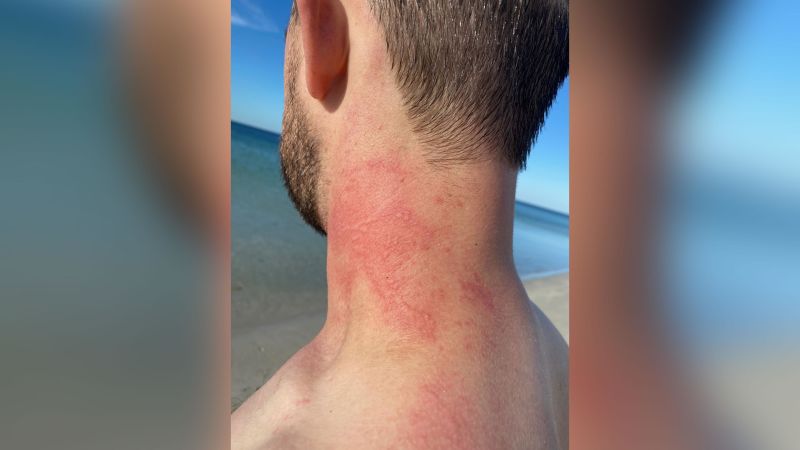Considered by biologists to be some of the most intelligent invertebrates, octopuses are normally playful and inquisitive.
But an Australian geologist saw another side to the marine creatures, when one octopus defended its home in Western Australia rather aggressively.
On March 18, 34-year-old Lance Karlson was walking on the beach and looking for somewhere to swim with his two-year-old daughter in Geographe Bay, a popular snorkeling spot about 140 miles south of Perth, when he saw what he thought was a stingray leap from the water.
Realizing the creature was, in fact, an octopus, he started filming it – just in time for the angry invertebrate to launch itself at him. Karlson posted his video on Instagram, where it has been viewed 60,000 times.
“I took that footage, it lashed out at me and I was quite surprised; and then it swam off into deeper water,” Karlson told CNN Friday.
While swimming nearby soon after, Karlson was examining a pile of crab shells when he felt a whipping sensation across his left arm, followed by a second strike across his neck and upper back.
He presumed the assailant was the same octopus as earlier and that he had inadvertently stumbled upon its home.
His goggles fogged and the water around him turned murky with what he thought might have been octopus ink as he struggled back toward the shore.
“I was confused – it was more of a shock than a fright,” said Karlson.
Octopuses are known to squirt an ink-like substance when they feel threatened.
Within a minute, a perfect imprint of an octopus tentacle appeared on Karlson’s neck and back.
A former volunteer lifeguard, Karlson rushed back to his hotel room to find something acidic to put on the wound. All his family could grab was Coca-Cola, which his wife poured over his back in the shower and the pain dissipated.
“The pain went away and more than anything since then, it’s been more the physical hit that was painful… The imprint on my neck in those photos is more from the physical hit, and I guess it makes complete sense when you look at the video I took 20 minutes earlier of that lashing out,” he said.
Bryan Fry, an associate professor at the School of Biological Sciences at the University of Queensland, identified the octopus as a common Octopus vulgaris.
“Like all octopuses it is venomous, but like most it is harmless to humans, with the venoms dramatically more potent on invertebrates like clams and lobster,” he told CNN Friday.
Karlson said he’d never seen an octopus that close before and watched Netflix documentary “My Octopus Teacher” after the incident to learn more about the cephalopods.
“They are beautiful creatures and I really hope this provokes more interest in octopuses as opposed to fear of them. I think this is a fascinating creature with clearly some very strong emotions just like we do as humans,” he added.
Read the full article here


